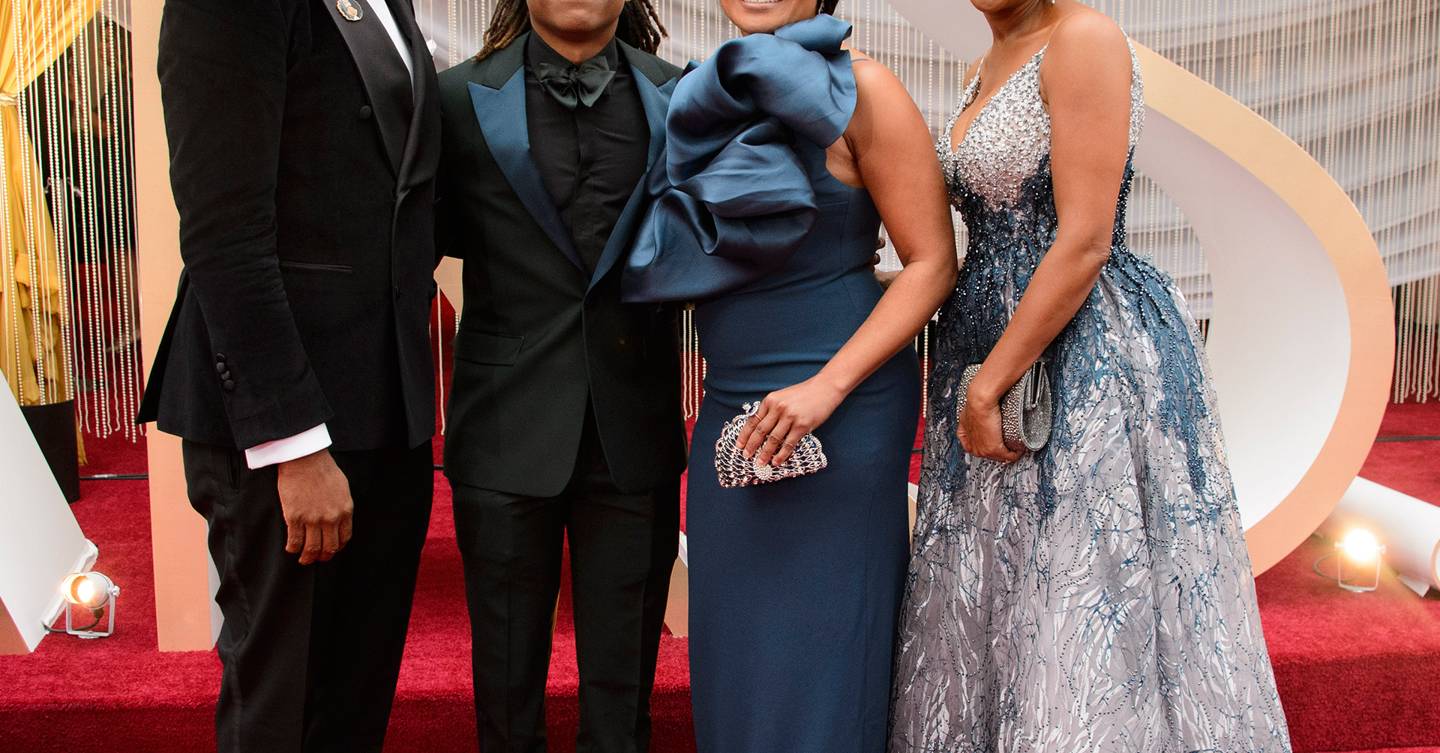Last night, “Hair Love” an animated short by former athlete Matthew Cherry, and producer Karen Rupert Toliver won an Oscar. This historic win – funded by the public with a 2017 Kickstarter campaign – depicts a black father’s search on how to nurture and care for his daughter’s natural curly textured hair.
This beautiful story – which also resulted in a children’s book – not only charmed the Academy but more importantly it has sparked conversations and shone the spotlight on two issues affecting the black community; society’s blanket ( and negative ) view of the black father and the cultural significance of black hair.
In his acceptance speech Cherry said, “Hair Love was born out of wanting to see more representation in animation but also wanting to normalise black hair. We have a a real chance here to help make hair discrimination illegal through the Crown Act and get it passed as law….for people like our special guest DeAndre Arnold.”
Cherry was referring to the high school student Arnold a Texan student who was banned from his own graduation as he refused to cut his Locs. “It’s truly an honour to have the platform to be able to invite DeAndre and his family to the Oscars….DeAndre is such a good kid and shouldn’t be punished for his hair. And we love that he didn’t bend to the pressure to cut it. We think his hair is beautiful and this is the least we could do to support him and show him love”, said Cherry.
Anyone with natural textured hair has always known the unwritten rules that their curls and coils meant everything from missed work opportunities to being followed around shops by security guards who assume you will steal or cause trouble, it means being judged. In the media and in movies, afro hair in its natural state has until recently been shorthand for someone being unrefined, unprofessional, rebellious, wild and not good enough. As my 3 year old twin daughters told me years ago, “Mama I can only be a maid in a fairy tale because I have dark skin and curly hair”. It shocked me and broke my heart that at 3 they too had absorbed this toxic message and it had already dented their sense of self.
Watching Cherry and Arnold on the red carpet – significantly both wearing their natural hair as a very public declaration and pride in their African heritage – sent ripples of social change throughout the world and made me tear up, because, like many people with afro hair, it bore personal resonance. I learnt from an early age my hair in its natural state wasn’t enough, it was something to be ashamed of . When my poor Trinidadian mother could no longer stand my screams, as she tried to detangle, comb and suppress my thick, dense wool like 4C coils I had inherited from my Nigerian father, at age 8 she straightened my hair. Thus began my 30 year relationship with the “creamy crack” or chemical hair straightening that left me with burns and scars not just on my scalp but also my soul.
I never saw images of powerful black men and women who looked like me, with hair like me, winning. It wasn’t until I began seeing women like Viola Davis and Lupita N’yongo on the red carpet with their coils on display and also becoming a mother to twin daughters that I ditched hair straightening and embraced my hair. The team natural movement which took hold a few years ago, saw social media help support, promote and teach people of colour to help relearn and nurture their natural coils and curls which they were taught to be ashamed off.
The collective outpouring and thirst for knowledge in learning about hydrating butters, oils, shampoo, conditioners and protective hair styles for afro hair started a revolution. And now, African hair techniques – from braids to threading – that had been lost and discarded through slavery and indoctrination are now being promoted and celebrated. Hair love joins this beautiful movement of embracing the way your hair grows out of your head and not allowing social pressure to literally re shape the way you think and feel about your hair and identity. This gives hope, representation and pride to millions of people with Afro hair, hair that historically has been much maligned. As has the reputation of black men.
For years the idea of the abusive, absentee black father has been perpetuated in movies, tv, books and news stories. Which is why it is so thrilling to see the loving, tender and empowering side of a black father who wants to not only nurture his daughters hair, but her self esteem and sense of self. That there are millions of black fathers who are loving providers, caretakers and examples of excellence is a side that is so rarely seen or heard. These narratives are constantly suppressed – the shocking lack of diversity at the Baftas and Oscars shows how far we need to go with regards to championing a range of voices and stories. True equality is when stories which some are traditionally perceived as “other” and not mainstream become the fabric of everyday representation.
Actress/ Writer Dani Fernandez tweeted, “As @VictoriaMahoney reminded everyone, Hair Love had to do crowdsourced funding on Kickstarter, in order to be made, because conventional studios and execs didn’t believe in its importance….I hope all those studios are listening now.”
I hope so too.
